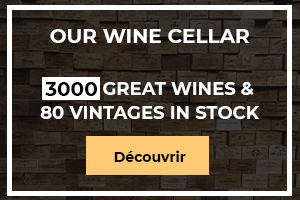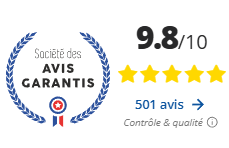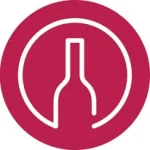The success factors of a great wine
The way grapes are grown (viticulture) and how they are then transformed into wine (vinification) are the two main factors affecting wine quality.
- Viticulture - Common-sense practices such as keeping the vines disease-free make a difference to the quality of the fruit and ultimately the wine. Harvesting only the ripest grapes and delivering them quickly to the cellar to limit oxidation also helps.
Yield is very important: it's the number of grapes grown per hectare of land; it's given in hectolitres per hectare, for example 50 hl / ha. The fewer the number of grapes per bunch, the more intense their flavor. In the best vineyards, yields can be as high as 30 hl / ha, e.g. top-quality Burgundy, compared with around 100 hl / ha for lower-quality wines, e.g. Liebfraumilch.
- Winemaking - Grapes need to be turned into wine as soon as possible, as contact with air causes oxidation that spoils their flavor. Understanding the effects of air, as well as temperature control during fermentation, have been breakthroughs in modern winemaking techniques. This knowledge has increased the overall quality of wine today.
There are many treatments used to make wine, and some are very harsh and can spoil or mar the flavor. Generally, they are used for convenience when processing huge quantities of lower quality wines.
How can you assess wine quality?
It's very difficult to assess wine quality simply by reading the label. Quality is best assessed by tasting.
Very often you won't be able to taste a wine before you buy, but information is available on wine labels to help you decide, although you will need some knowledge of producers and vintages. Of course, any good wine merchant can offer you this advice.
There are quality classification systems within the EU which provide guidance; Vin de Pays should be of better quality than Vin de Table because of the wine production laws in place. So, as a general rule, the higher the quality scale, the better the wine should be. As in any industry, there are those who take pride in their product and produce outstanding wine in the quality category, and those who make just enough to stay within its limits, so there will always be variations.
Wines produced outside Europe are not governed to the same extent, making it more difficult for the consumer to identify the best wines. Market forces, i.e. price is often the only guide, and establishing whether the wine producer has a good reputation. Very often, wines made from grapes from a single vineyard are of good quality - some vineyards offer perfect growing conditions and the quality of the fruit is excellent, e.g. Pfeifer Vineyard belonging to King Estate makes exceptional pinot noir.
Old vines generally produce fewer bunches of grapes, but they are generally of better quality. Consequently, wines that claim to be made from "old vines", old vines are generally better than average quality.
Is price the best way to judge a wine's quality?
Price is only an indication of quality when comparing similar wines, for example two bottles of claret from the same vintage. The price also reflects age, rarity and whether it comes from a particularly famous producer. Producers with an excellent reputation are able to command higher prices for their wines. This doesn't mean that a small, unknown producer can't produce wines of similar quality at a fraction of the price.
Don't use price as an indicator of quality when comparing with another. Price can't compete with wine knowledge. The more you know about the producers, winemaking techniques and other expertise, the better you'll be able to choose the right wine.
Is spending a lot of money on wine justifiable?

Wine is like any other commodity. Production costs, scarcity and prestige are the factors that determine the final price.
Winemakers can choose to produce their wines at low or high cost. They could make their wine using low yields rather than higher volumes at high yields to ensure the use of more aromatic grapes. They could harvest by hand (high labor costs) rather than by machine to be more selective. They could make their wine in concrete vats or new oak barrels (very expensive). All these extra costs will be recouped in the selling price of the wine. This is why a wine from a quality producer will always be more expensive than a bulk wine.
Many quality wines mature over a long period of time before reaching their peak. As time passes and more and more bottles are drunk, a wine becomes rarer and rarer. Often, a bottle of wine will be bought and sold several times, pushing its price higher and higher. Then there are the astonishingly good wines made in small quantities each year, which are immediately rare and, of course, expensive.
There's really no difference between a rare quality wine and a limited edition luxury car, both are desirable commodities and if they're your passion, you'll be willing to pay for their rarity and exclusivity and believe they're worth the price paid.
Buy fine wines at the best price
Discover our old vintages and rare wines on Comptoir des Millésimes. Buy Fine Wines, Grands Crus and Old vintages from the finest cellars in France. Many ideas for wines for your most beautiful gifts ! Offer a grand cru is a magical moment.





